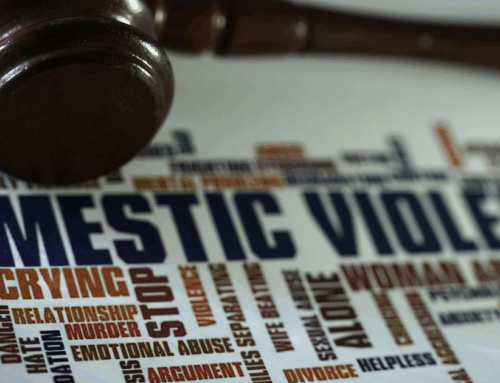Not All Strikes Are Equal: Indiana’s Habitual Offender Law Explained
A Closer Look at Indiana’s Habitual Offender Law
What is a habitual offender in Indiana? That might sound too confusing for an average person. If you are one of them, that’s entirely normal. Understanding this concept involves a thorough understanding of Indiana’s relevant laws.
In Indiana, if you’ve been caught and convicted of two or more serious crimes (felonies) in the past, you might be labeled a “habitual offender.” That doesn’t mean a new charge, but if you get convicted of another felony, you could face much longer jail time. That is crucial for people in Indiana to know because it shows the tough penalties for committing serious crimes repeatedly.
Short Summary:
- Indiana labels someone a “habitual offender” if they are convicted of a new felony after committing two or more serious crimes (felonies) in the past. This label leads to harsher punishments, including extra jail time added to the sentence for the new crime.
- Challenging habitual offender status is limited. In most cases, you cannot challenge the validity of past convictions used to label you as a habitual offender in Indiana. There’s only an exception if the conviction violated your constitutional rights.
- Certain past misdemeanors that became felonies due to prior convictions cannot be used to enhance your sentence, but the original misdemeanor can still count as a prior offense.
- A habitual offender is not a separate crime. Being labeled a habitual offender enhances your sentence for a new crime instead.
- The law differentiates between “serious” and “somewhat serious” felonies. The criteria for habitual offender status differ based on this classification.
What is the Indiana Habitual Offender Enhancements Law?
In Indiana, if you commit a felony again after past felonies, you might get a harsher sentence. Different rules are depending on how bad your past crimes were. To be labeled a “habitual offender,” the state must prove you have enough past felonies of a certain seriousness.
For the most serious crimes (murder or Levels 1-4 felonies), they need to show:
- At least two past felonies are not related to the new crime
- At least one of those past felonies is a more serious crime than theft or drug offenses
For somewhat serious crimes (Level 5 felonies) in Indiana, getting labeled a “habitual offender” has extra conditions:
- At least two past felonies are not related to the new crime
- One of those past felonies must be a more serious crime than theft or drug offenses
- Not too much time has passed since you finished your punishment for those past crimes
In Indiana, to be labeled a “habitual offender” for any felony, you need:
- At least three past felonies are not related to the new crime
- One of those past felonies cannot be a minor crime
- Not too much time has passed since you finished your punishment for at least one of those past crimes
The law also explains what counts as separate crimes for Indiana’s “habitual offender” rule:
- The past crimes must have happened one after another, with a sentence between each one.
- The new crime you are accused of must also come after you were punished for the very first past crime
- If you have three past felonies, the third one must come after the punishment for the second one
What is the Relevance of Indiana’s Enhancements Law?
Being labeled a “habitual offender” in Indiana isn’t automatic. The state must officially accuse you and prove you have enough past felonies. That happens separately from your main criminal case.
The state will file a separate charge saying you’re a repeat offender. They’ll also list your past crimes and why they count.
First, you’ll get a hearing to understand the charge and your rights. They’ll ask if you admit to having past crimes. If you say no, a judge or jury (depending on your main case) will decide if you’re a repeat offender in Indiana.
What is the Three Strikes Law of Indiana?
The law around repeat offenders in Indiana can be confusing. There are many rules and exceptions for who gets labeled a “habitual offender.” Here are a few key points:
- If a crime was originally a misdemeanor but became a felony due to a past conviction, prosecutors cannot use this current felony to make your sentence harsher as a habitual offender. However, they can still count that old misdemeanor as one of your past offenses.
- Even if you don’t admit to past felonies, you generally can’t challenge them in the habitual offender hearing. You can’t agree to have the conviction but argue it was wrong. The only exception is if you can prove the conviction violated your rights under the U.S. or Indiana Constitution.
Is Habitual Offender Status a Crime?
The short answer is no. Being a habitual offender in Indiana isn’t a separate crime, but it can mean getting a longer sentence. If the judge or jury decides you fit the Indiana law for habitual offenders or you admit to it, they can add extra time to your main sentence. This extra punishment gets tacked onto the most serious felony you’re convicted of.
The amount of extra time depends on the crime. For murder or the worst felonies (Level 1-4), it’s six to 20 years. For lesser felonies (Level 5-6), it’s two to six years.
Strategize an Effective Criminal Defense Today!
Indiana’s Habitual Offender Law is crucial for anyone facing felony charges in the state. This law doesn’t create a new crime, but it can significantly increase your sentence if you have a history of felonies. Understanding how the Habitual Offender status works is crucial, as it highlights the severe consequences of repeat criminal offenses in Indiana.
Facing criminal charges? Are you convicted as a habitual offender in Indiana? Our competent criminal defense attorney in Wilson & Kinsman LLC can fight for you! We give you one-on-one attention and create a legal plan for your case. With over 50 years of experience, we’ll use our knowledge to give the best defense possible.
We also handle criminal defenses, personal injury, and more! Get an initial consultation now, and let’s strategize your effective criminal defense!
Share This Story, Choose Your Platform!
Give us a call!
Testimonials
Read what our former clients have to say:







